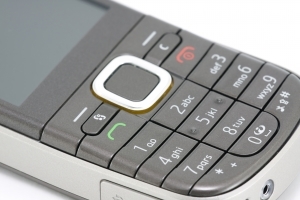May 21, 2018

On May 14, 2018, a Telephone Consumer Protection Act (“TCPA”) class action lawsuit filed by Plaintiff John Herrick (“Herrick”) in the United States District Court for the District of Arizona against Defendant GoDaddy.com, LLC (“GoDaddy”) was dismissed.
The TCPA prohibits the making of any call, including sending text messages, using an automatic telephone dialing system (“ATDS” or “autodialer”), to any telephone number assigned to a cellular telephone service, without the receiving party’s prior express written consent. In his lawsuit, Herrick complained of receiving a single text message from GoDaddy offering a “promo code” to save forty percent on new web-based products and services.
At issue in GoDaddy’s motion for summary judgment was whether the text sent on GoDaddy’s behalf by a web-based software company using its “3Seventy Platform” employed an autodialer. The TCPA defines an autodialer as “equipment which has the capacity (A) to store or produce telephone numbers to be called, using a random or sequential number generator; and (B) to dial such numbers.” 47 U.S.C. § 227(a)(1). After deliberating, the District Court determined that the 3Seventy Platform did not satisfy the definition of autodialer, granted summary judgment and dismissed the lawsuit.
Why did the Court find that the 3Seventy Platform was not an Autodialer?
We have previously blogged about the recent D.C. Circuit Court of Appeals decision in ACA Int’l v. FCC which vacated various aspects of the Federal Communications Commission’s (“FCC”) 2015 Order interpreting the definition of autodialer (the “ACA Decision”). Among the reasons for vacatur was the FCC’s lack of meaningful, reasoned guidance as to the meaning of the phrase “using a random or sequential number generator,” including whether the device, itself, must have that capacity. In addition, the Court of Appeals found that the FCC provided an unreasonably expansive and inconsistent interpretation of the autodialer definition by suggesting that even dialing equipment which lacks the capacity to generate random or sequential numbers could be considered an ATDS.
In rendering its decision in the GoDaddy proceeding, the Arizona District Court concluded that the ACA Decision was binding, such that it was free to make its own determination as to what constituted an autodialer, unconstrained by the FCC’s 2015 Order. The District Court found the following facts to be material in granting summary judgment to GoDaddy: the 3Seventy Platform requires a user to provide a list of customer phone numbers, which are then uploaded; the user then logs on and selects which of the numbers it would like to send a text message to, manually types the subject text content and determines when the applicable text is to be sent; and the user, thereafter, authorizes the sending of the text by solving a “captcha” problem. Given these facts, the District Court concluded that the 3Seventy Platform only dialed from a fixed set of numbers, that is, a stored call list derived from a preprogrammed file or list provided by a user. Because the 3Seventy Platform could not randomly or sequentially generate the numbers by itself and required meaningful human intervention, the Court concluded that the 3Seventy Platform did not meet the definition of an autodialer within the meaning of the TCPA.
The Implications of the D.C. Circuit’s Autodialer Decision Continue to Grow
As we predicted, the D.C. Circuit’s ruling is proving to be pivotal in providing a useful tool in defending against TCPA lawsuits. As more courts arrive at their own common-sense interpretations of TCPA provisions, FCC staff may feel compelled to narrow its autodialer definition in its next iteration of TCPA guidance. Notwithstanding the foregoing, the ever-changing telemarketing landscape makes it critical to have telemarketing practices and procedures examined by experienced counsel.
If you are interested in learning more about this topic or are a party to a TCPA lawsuit, please e-mail us at info@kleinmoynihan.com or call us at (212) 246-0900.
The material contained herein is provided for information purposes only and is not legal advice, nor is it a substitute for obtaining legal advice from an attorney. Each situation is unique, and you should not act or rely on any information contained herein without seeking the advice of an experienced attorney.
Attorney Advertising
Related Blog Posts:
FCC Seeks Comment on New Autodialer Definition



